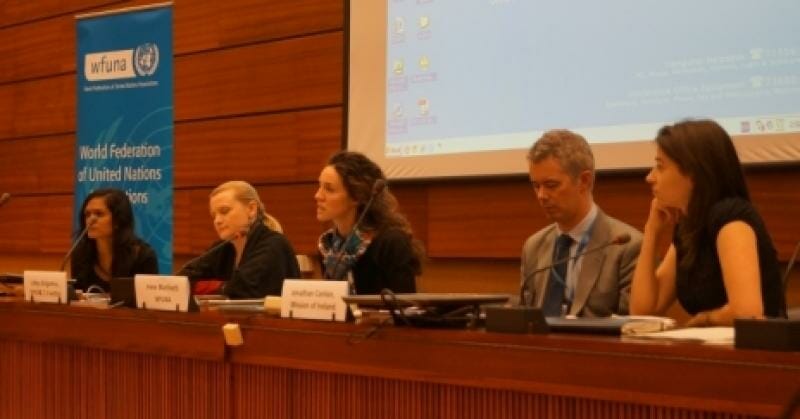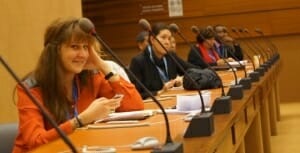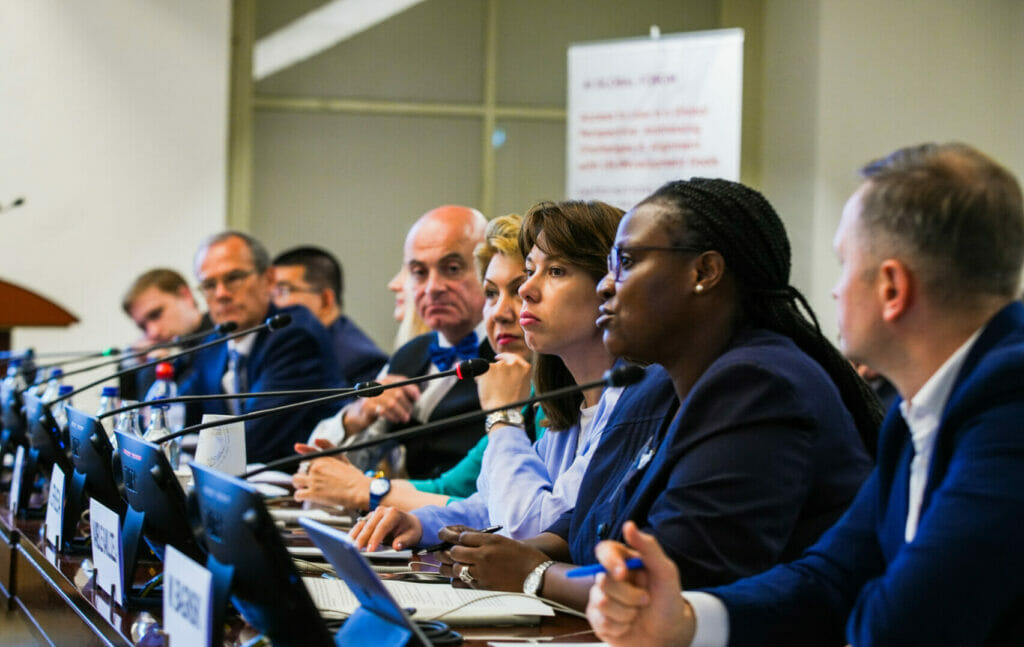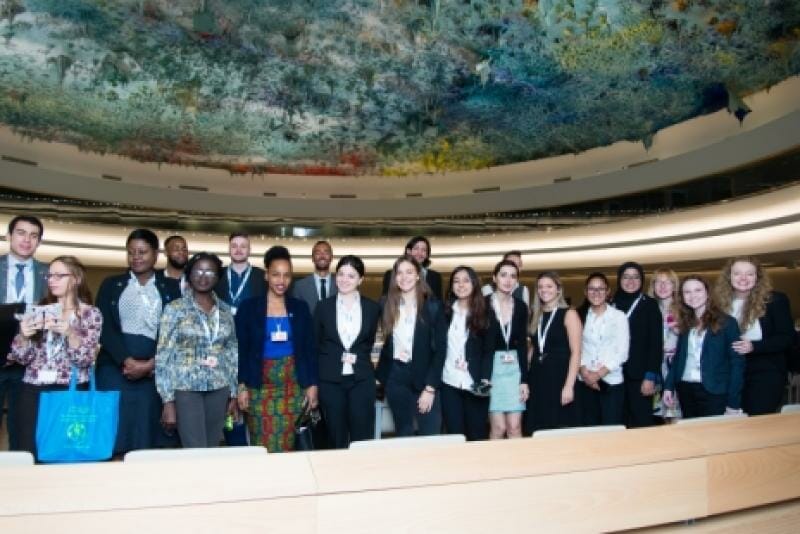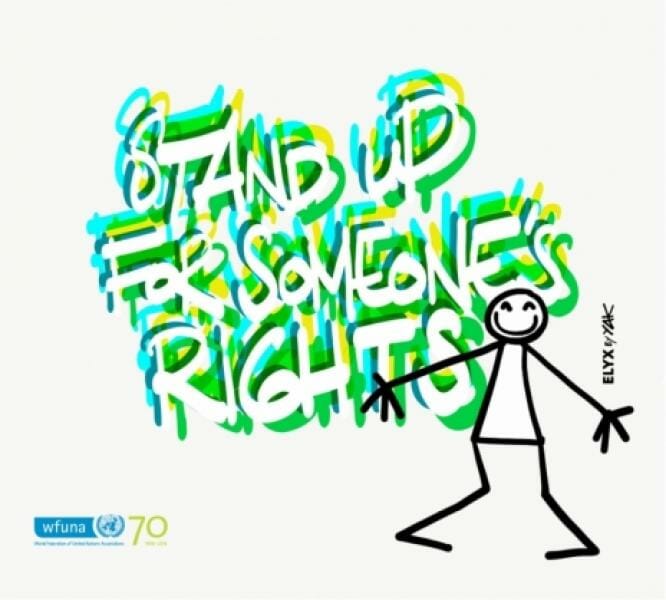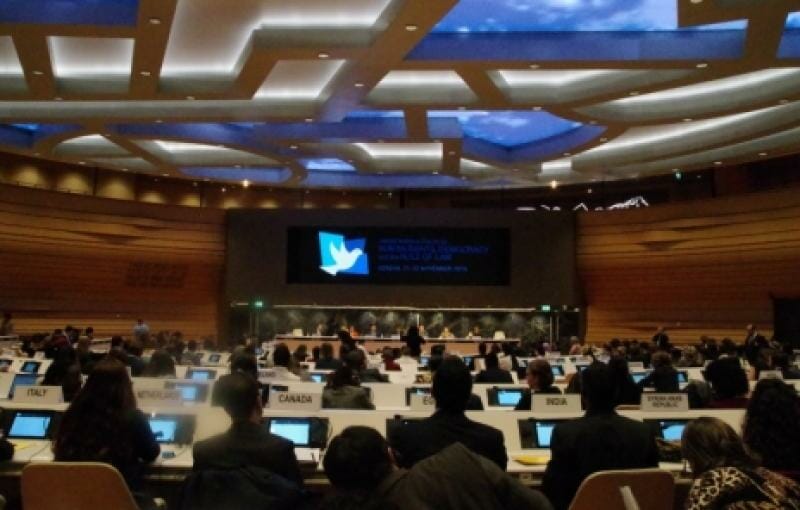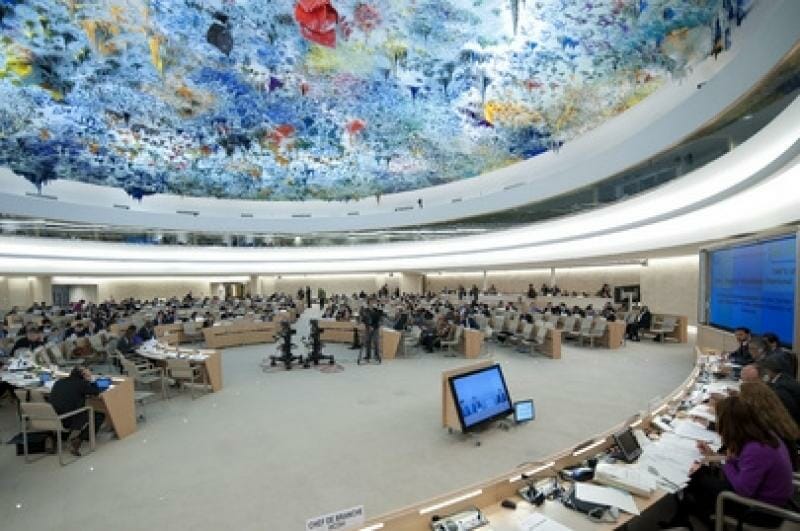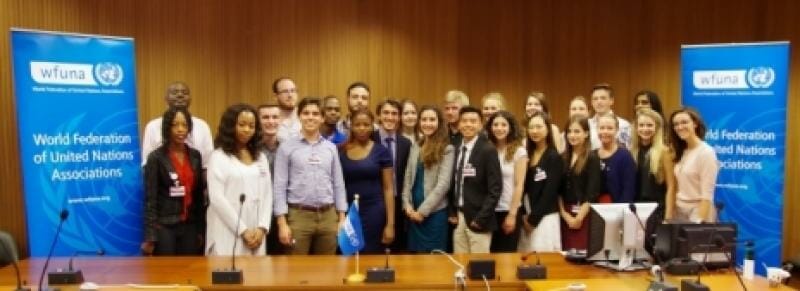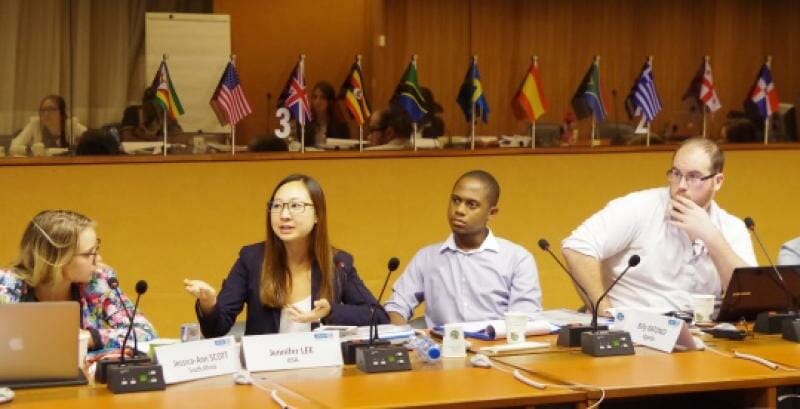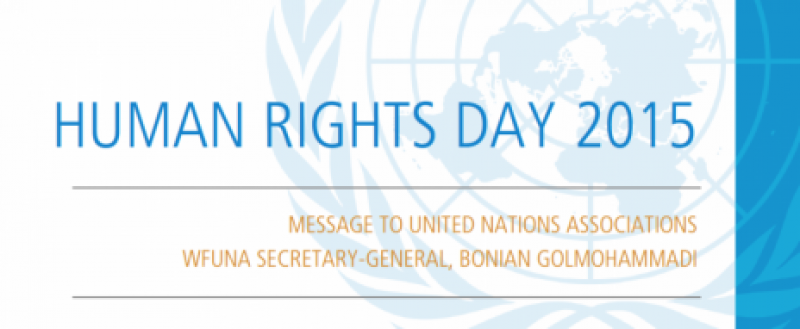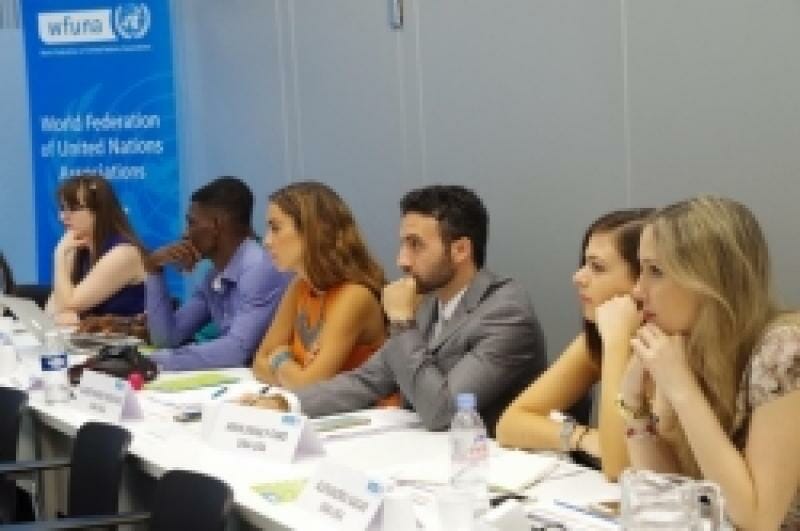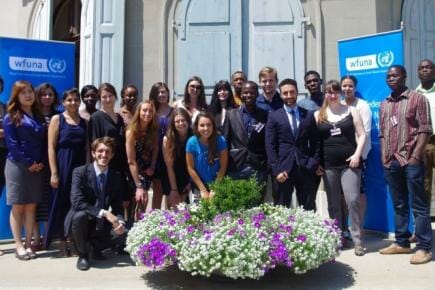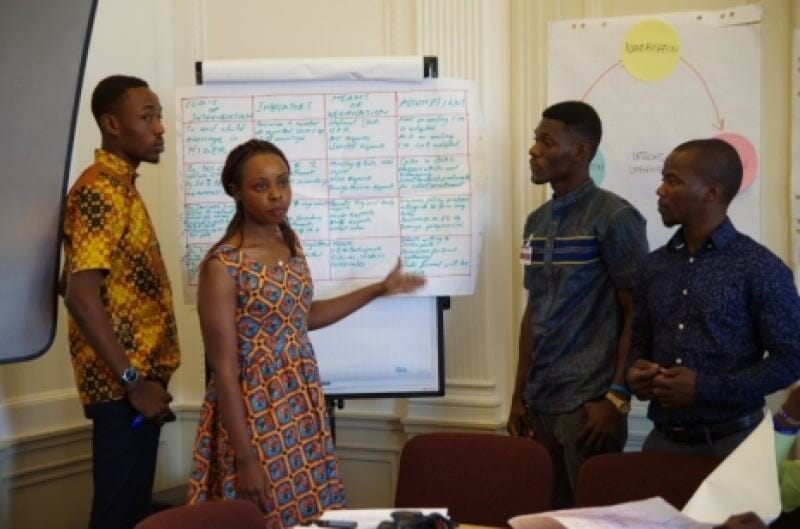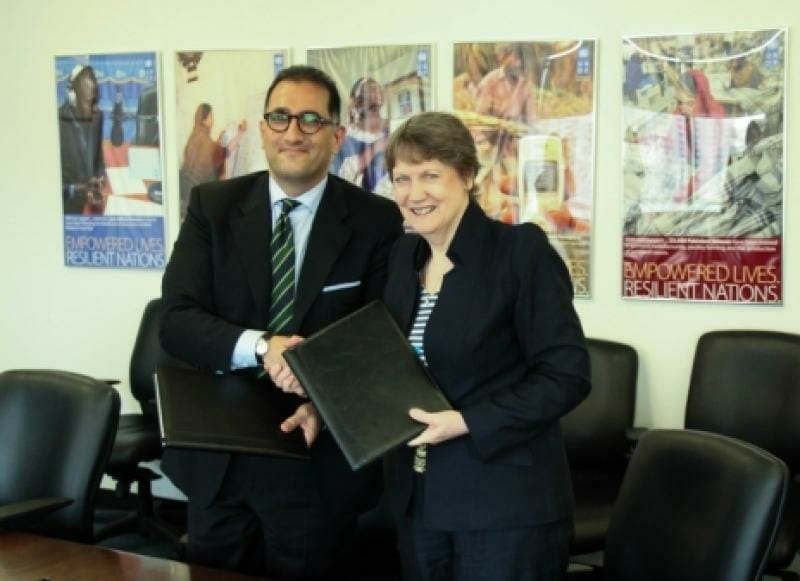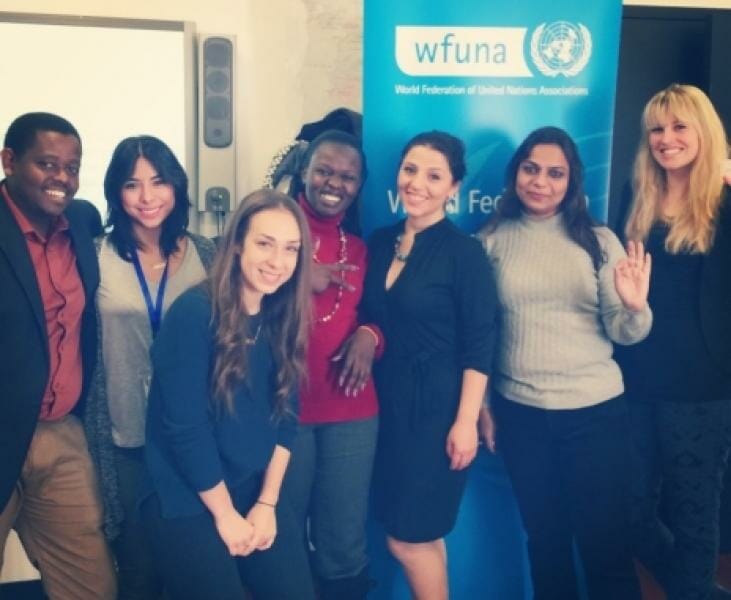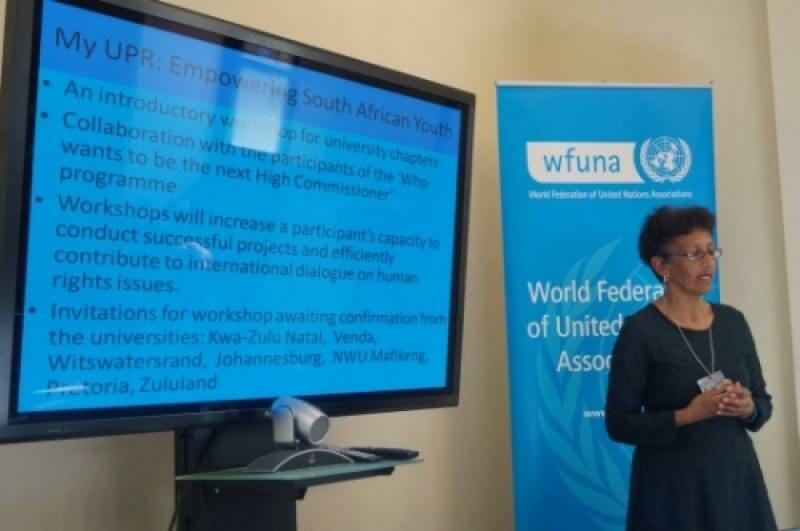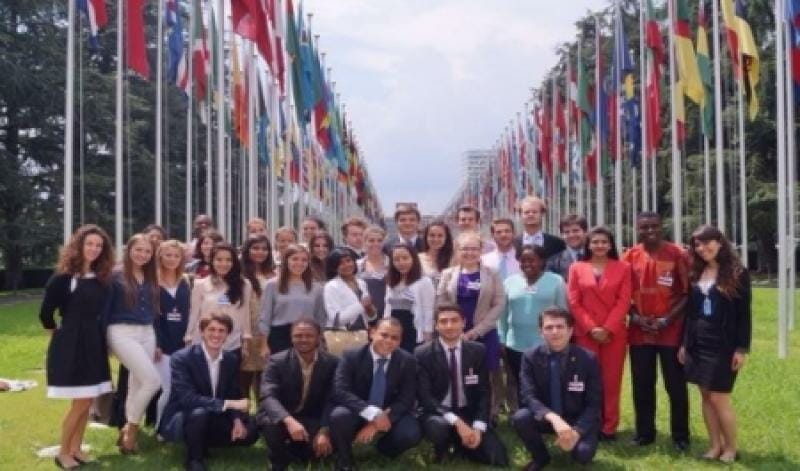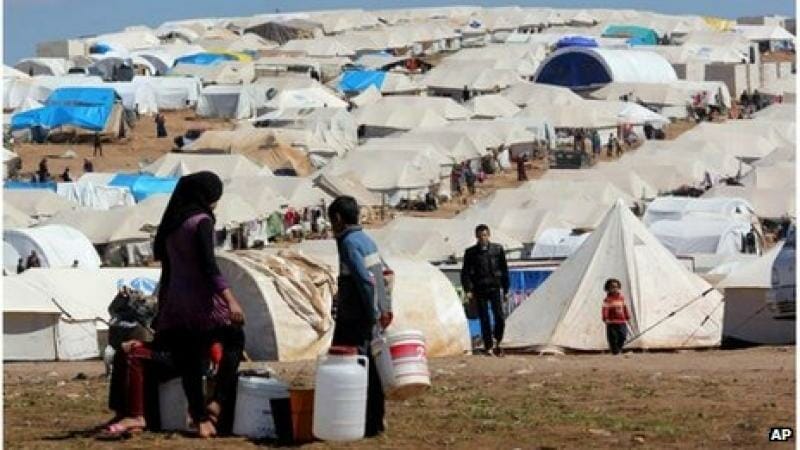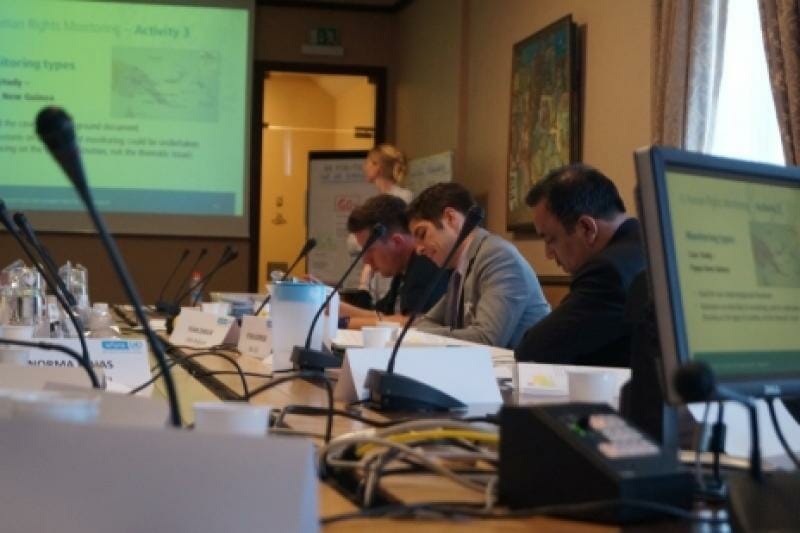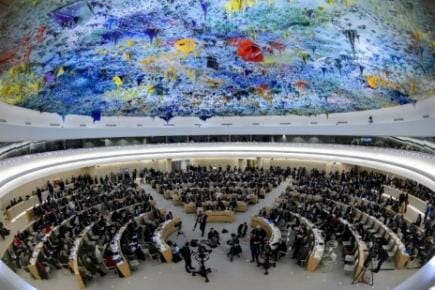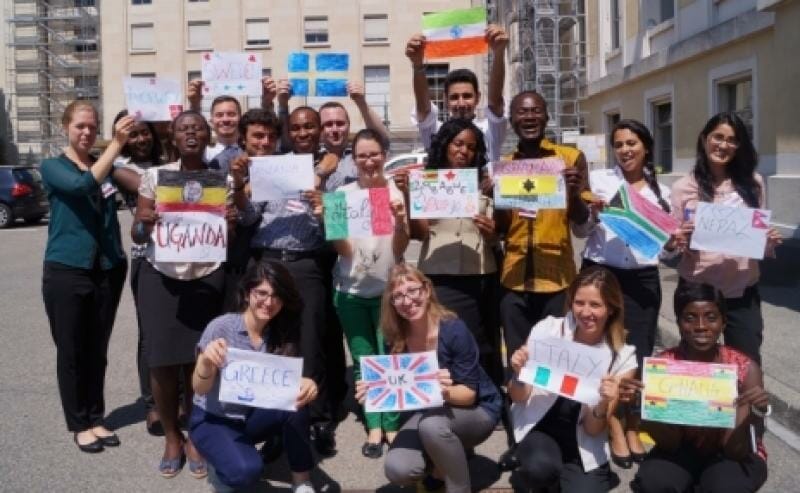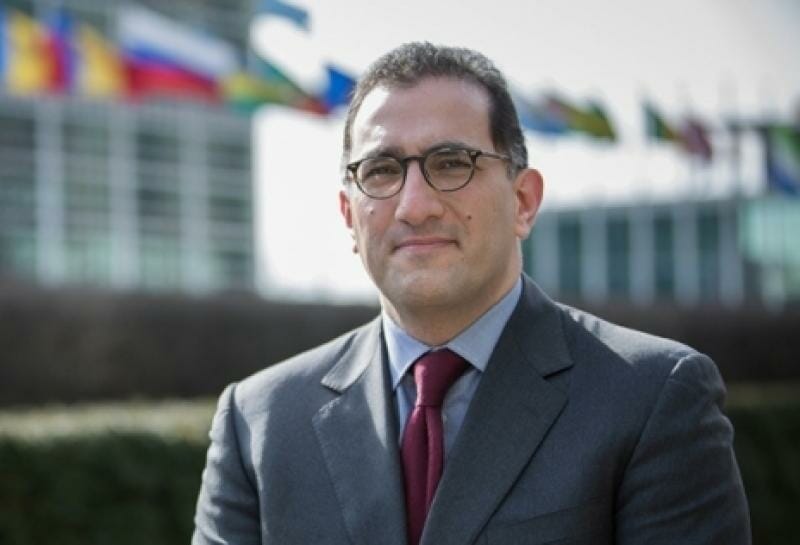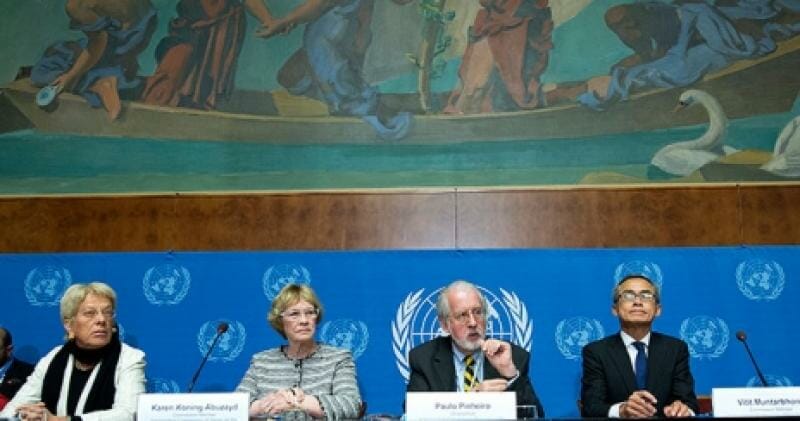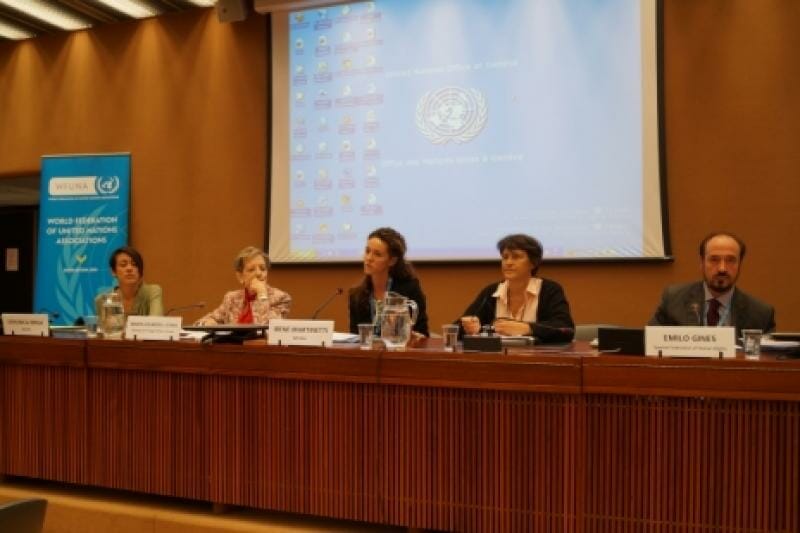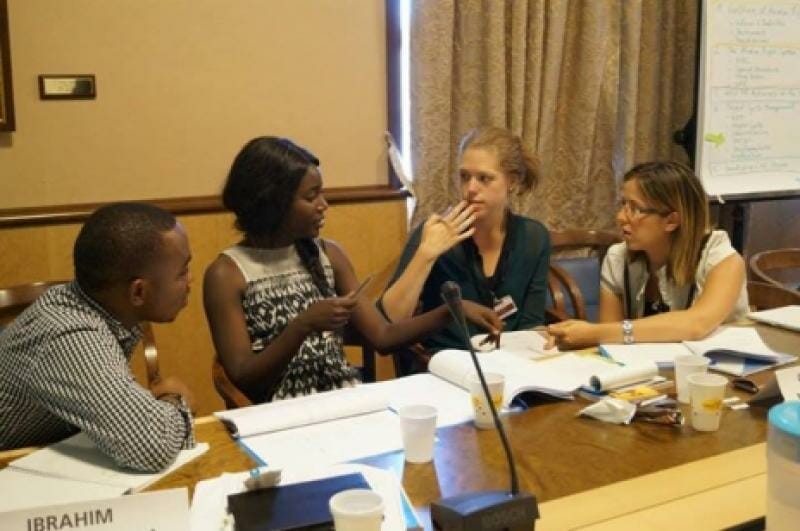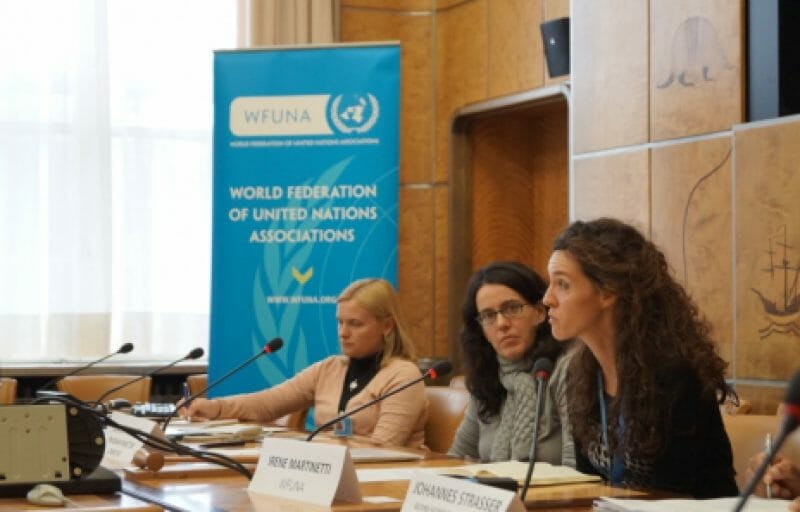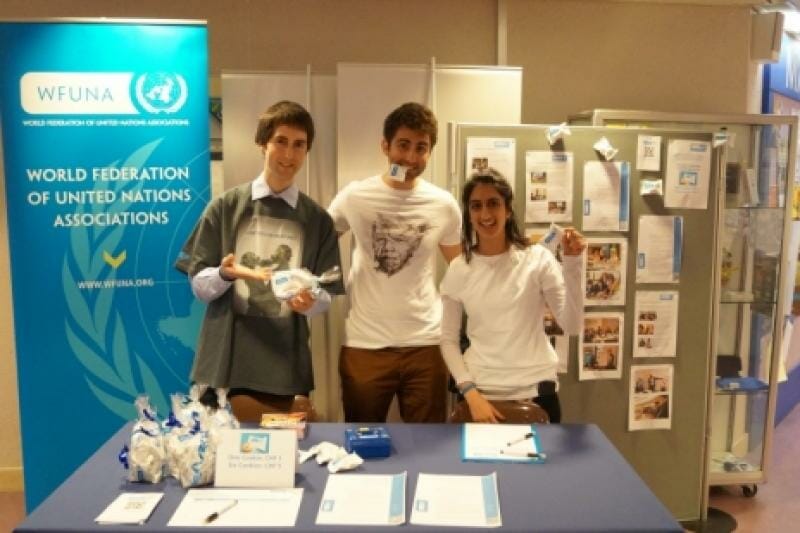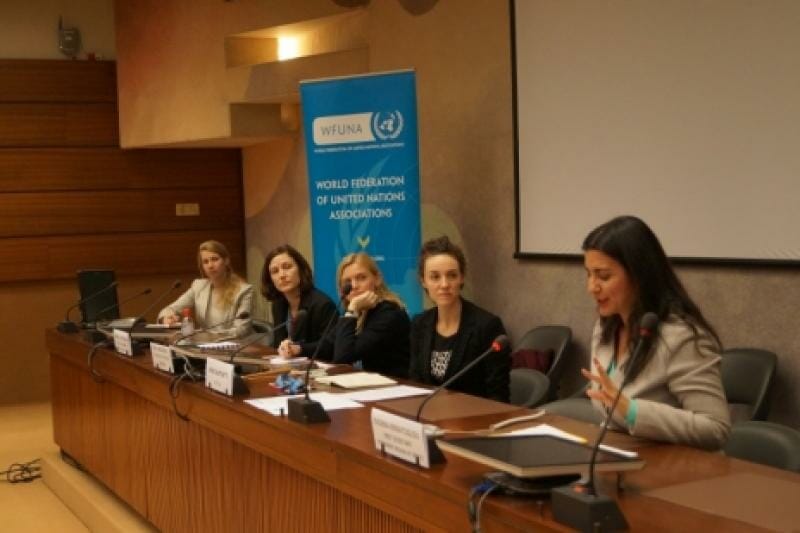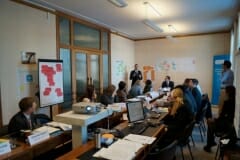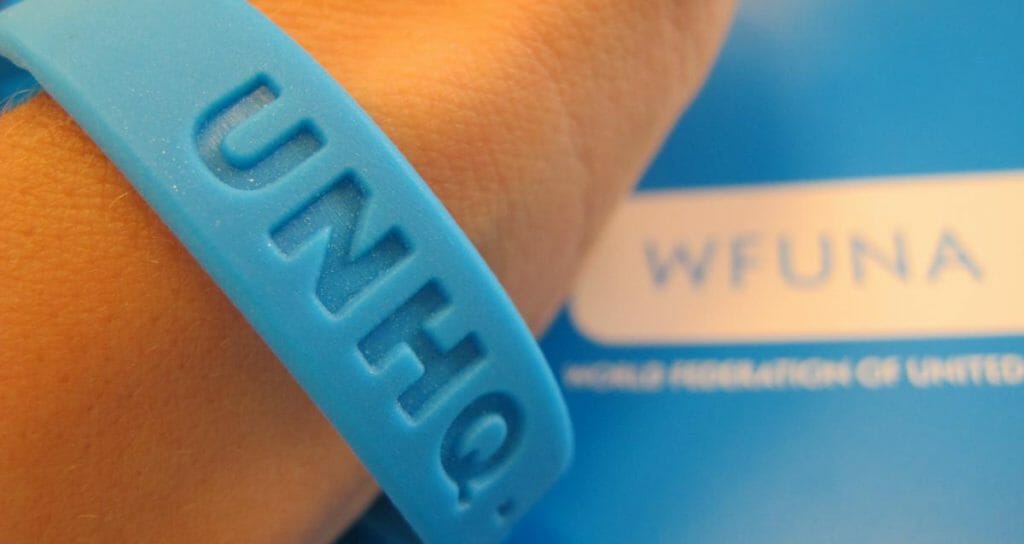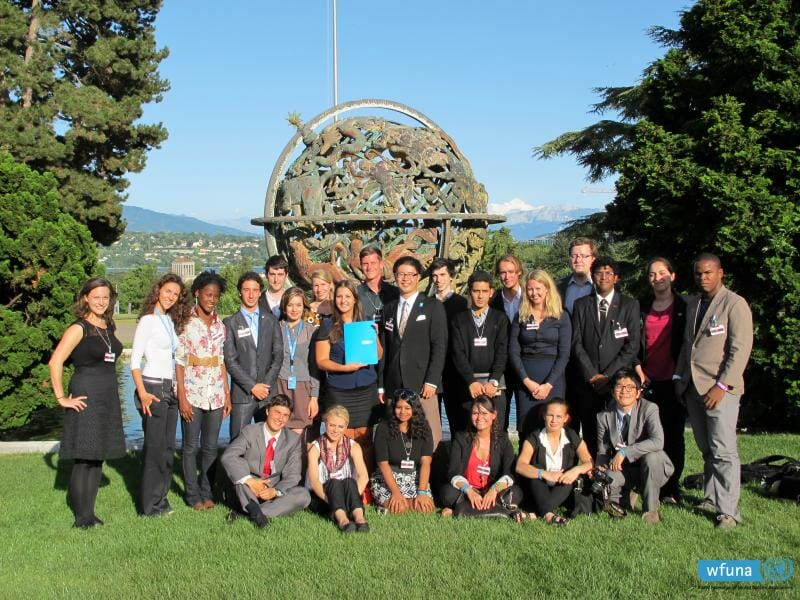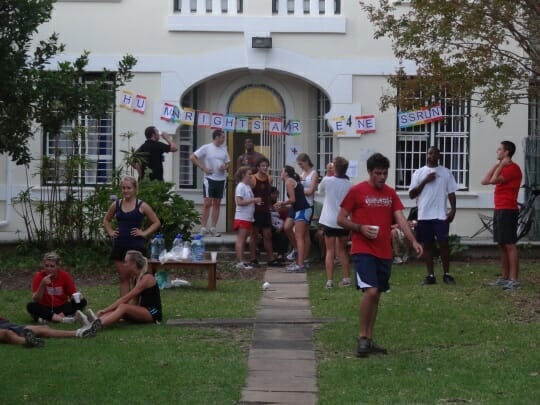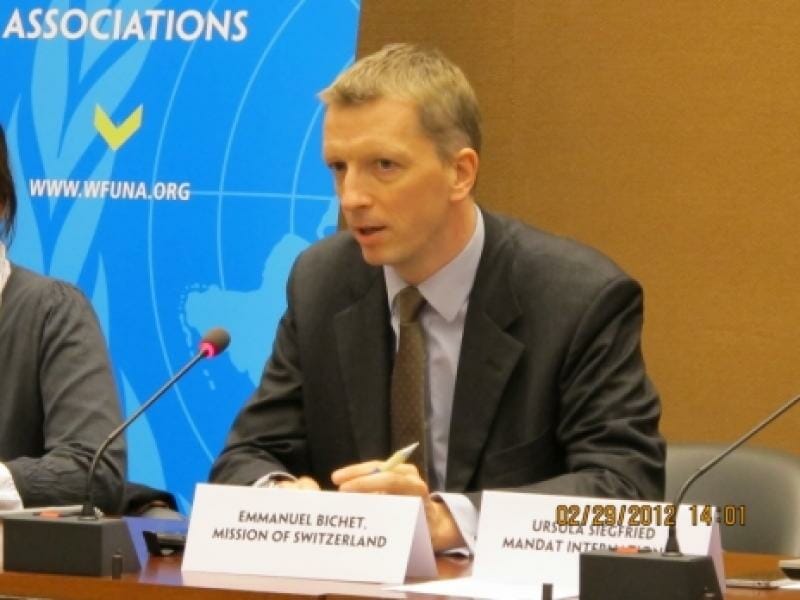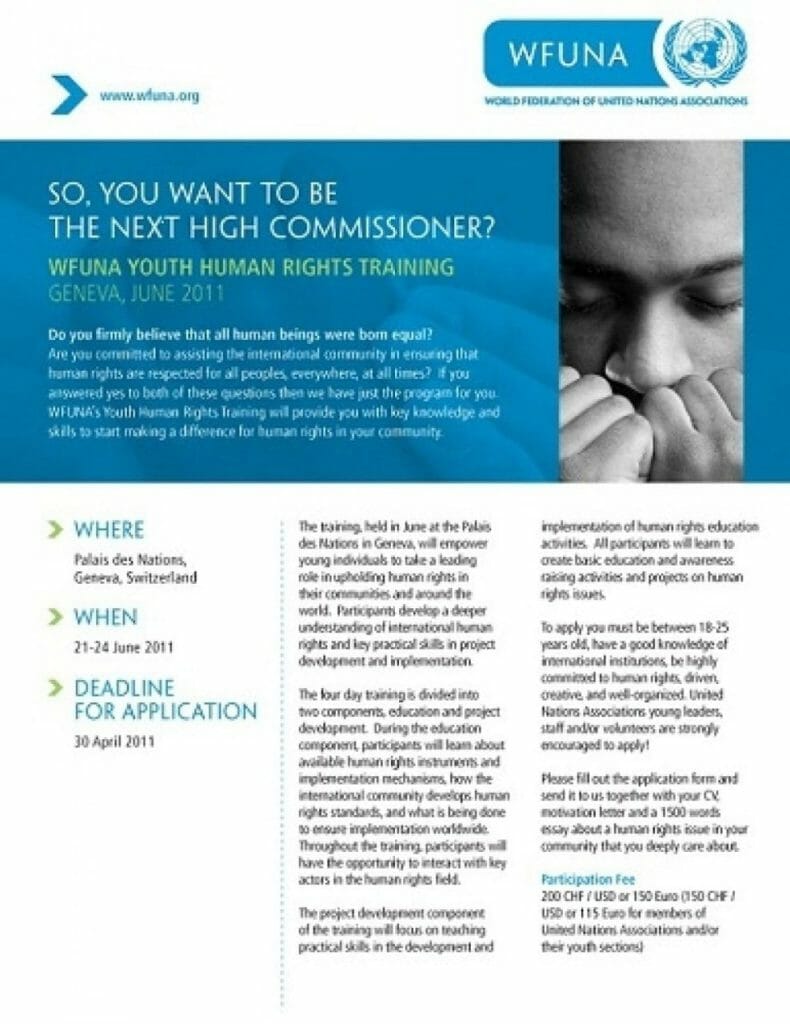On 6 March 2014, WFUNA and Mandat International organized a parallel event to the 25th session of the Human Rights Council on behalf of the NGO Committee on Human Rights (CoNGO). This was the first of four information briefings on the UN Human Rights Council. Chaired by Irene Martinetti, WFUNA’s Director of Programs, this session aimed at providing concrete advice to NGOs on how to engage effectively with the Human Rights Council.
Lidiya Grigoreva, from the Civil Society Section of the Office of the High Commissioner for Human Rights, was the first to take the floor. She outlined the three formal ways that NGOs with ECOSOC Consultative Status can engage with the Human Rights Council. NGOs can:
- Submit written statements relevant to the agenda items of each session
- Deliver oral statements during the Council’s agenda items
- Organize parallel events on issues of concern for their advocacy work
Today, NGOs without a presence in Geneva can send video statements to the Human Rights Council. Presence at the Council, however, is a plus as NGOs have the opportunity to engage effectively with the various stakeholders during the session. For example, the President of the HRC meets with NGOs twice during each session, and the High Commissioner holds a meeting with NGOs during the main session of the HRC. These are precious opportunities for NGOs to raise matters directly with key stakeholders.
Pooja Patel, a research consultant with Universal Rights Group who has worked in the past as a civil society advocate with an Asian regional human rights NGO, stressed that the Human Rights Council is a great opportunity for NGOs to establish links with missions based in Geneva for it provides both a formal and informal space for discussion.
Coordination at the national level and extensive preparation well in advance of a Council session are key to ensuring successful engagement with the HRC. Developing clear objectives, identifying stakeholders, and developing a strategy is imperative. Depending on the objectives, meeting a national delegation can help, or not, to reach desired outcomes. Clear objectives and a defined strategy will help organizations to develop targeted documentation and communication materials which must be concise, to the point and include recommendations.
When at the Council, it is crucial to target relevant meetings and update national counterparts regularly. While in Geneva, it is advisable to make the best use of time and combine participation in the HRC session with meetings and activities that include other mechanisms and, if possible, to take the time to meet with relevant Special Rapporteurs, Independent Experts, etc.
After the Council, calling a press conference or translating and disseminating information can be excellent ways to capitalize on recent engagement with the HRC. Follow-up, implementation and monitoring are always a key part of a strategy of engagement with all international human rights mechanisms and should not be overlooked.
As reprisals are a real concern, it is important that organizations evaluate carefully whether participation in the Council could bring about unintended negative consequences to delegates or their families.
Jonathan Conlon, Deputy Permanent Representative of Ireland to the UN and head of the human rights team at the Irish Mission, stressed the commitment of the government of Ireland to Civil Society. Civil society space is a crucial concern for Ireland, who has sponsored a resolution on the issue at the 24th session of the HRC.
Mr. Conlon stressed that many State representatives rely to a large extent on civil society organizations as sources of information. Credibility is therefore crucial in order to build a constructive relationship with delegates working in the context of the Council. When engaging with the Council, NGOs must respect the strict schedule of the HRC and make sure that their statements are delivered under the relevant agenda items.
Identifying the right Mission is crucial when developing a strategy as States focus on different issues. Always present clear and very well organized information, as concise as possible, with clear and realistic objectives and well in advance of the session. It is good practice to contact officers in charge at the national level as well.
Marine Bourgeois, who is in charge of the Welcome Desk at Mandat International, gave an extensive presentation of useful tools and resources to engage effectively with the Human Rights Council. All resources mentioned by Marine are available on the Welcome Desk’s website.
The Welcome Desk is available throughout Council sessions on the first floor of building E of the Palais des Nations to provide advice to NGO delegates in several languages.
Mandat International provides a wealth of tools for NGOs to prepare to successfully engage with UN meetings taking place at the UN in Geneva.


